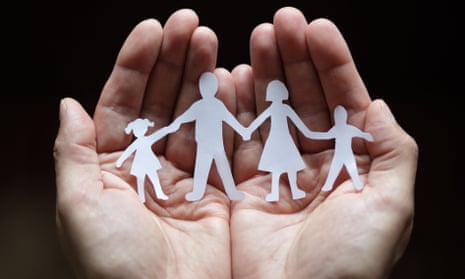Frankly, I’m embarrassed to admit that one of the books that matters to me most is called What Matters Most. Sophisticated readers are supposed to be changed in subtler ways, by novels and poems that don’t crassly advertise their life-changing intent. But I don’t think the title of this wise book of advice should be interpreted as self-help cheesiness; really, it’s refreshing bluntness. Life is full of troubles, writes the psychoanalyst James Hollis, and every choice you make is in some sense a failure. Then you die.
The man’s a total downer; the one-star Amazon reviews of his books are full of people furious at his refusal to offer cheery reassurance or a one-size-fits-all recipe for happiness. As a teenager or young adult, I suspect I’d have been equally annoyed. But I discovered Hollis at the right time, a few years back, and his writing was a bracing draught of reality, a rousing slap in the face, a wake-up call – pick your metaphor, but What Matters Most was what I needed.
Hollis is a follower of Carl Jung, so his view of the mind is that the ego – the conscious “voice in the head” that we take to be ourselves – is only a tiny part of the whole. Sure, it has all sorts of schemes it believes will make us happy and secure, usually involving large salaries, public acclaim, or flawless partners or children. Yet in reality (Hollis writes elsewhere) the ego is nothing but a “thin wafer of consciousness floating on an iridescent ocean called the soul”. The vast forces of the unconscious – the psyche, or “the gods” when Hollis is feeling more lyrical – have their own plans for us.
The task, for each person, is to figure out what they are, and then heed that call instead of resisting it. (Does the mind really work this way? Hasn’t Jung been “debunked”? It took me a long time to see that this question isn’t always the most useful one to ask.)
This is a radical and humbling way of thinking about psychology. It means that what you think you want from life probably isn’t what life wants from you. And it means that living meaningfully is almost certainly going to screw with your plans, forcing you out of comfort and certainty, and into suffering and the unknown. What Matters Most is full of the (anonymised) tales of Hollis’s therapy patients, men and women finally grasping, in midlife, that for years they’ve been following other people’s agendas – the expectations of society, or their parents – and constructing increasingly false lives as a result. You’re tempted to pity them, until you realise they’re all of us.
In this respect, at least, earlier humans had things easier, Hollis argues, echoing Jung: myth and religion and ritual connected them more directly to the realm of psyche.
These days we try to just ignore this deeper level. But when suppressed, it always surfaces somewhere eventually, as depression or insomnia or bad dreams. “When we are off track, psyche protests,” Hollis writes. “Noisy demonstrations are held in the amphitheatre of the body; streets are blocked in the brain by rebels from the cane fields; dreams are invaded by spectral disturbances; affects riot and tear down the work of years.”
And there’s no guarantee that we’ll ever hear the message: many just redouble their efforts to find happiness via the old, failed methods. The soul calls them to an appointment with life – and yet, as Hollis puts it, in a line that surely has a double meaning for a working therapist, “many people, I have noticed, fail to show up for their appointments”.

OK, OK, but what’s the answer? What does matter most? Don’t expect Hollis to tell you. “I will not rehearse the usual list of what matters most, namely: friends and family, love, honour, good work, reputation,” he writes. Hence those furious one-star reviewers, and the point they’re missing – which is that each of us has to stop relying on anyone else’s answer to the question.
But he does drop hints. At any major juncture in life, Hollis argues, we should ask: “Does this path, this choice, make me larger or smaller?” There’s something uncanny about this question, which has seen me through several dilemmas since discovering his work. The usual question is “Will this make me happy?” – but few of us, if we’re honest, have much of a clue about what will make us, or our loved ones, happiest. Ask whether a choice will make you larger or diminish you, though, and surprisingly often the answer’s obvious. Every choice, writes Hollis, demonstrating again his splendid refusal to be upbeat for the sake of it, represents a kind of death. So “when we get to junctures like that, we had better choose the dying that enlarges rather than the one that keeps us stuck”.
And anyway, who says that “happiness” – that shallow, elusive, rather narcissistic notion – is the best measure of a life in any case? Hollis quotes Rainer Maria Rilke: “The purpose of life is to be defeated by ever greater things.”
And he cites a wonderful New Yorker cartoon, by Robert Mankoff, portraying a therapist addressing his client: “Look, making you happy is out of the question. But I can give you a compelling narrative for your misery.” I’d settle for that – and, actually, if the result were a life with more meaning, the truth is that it wouldn’t be settling.

